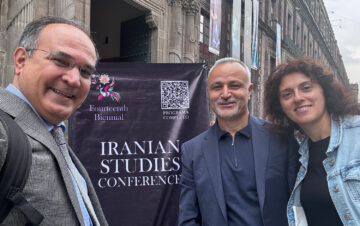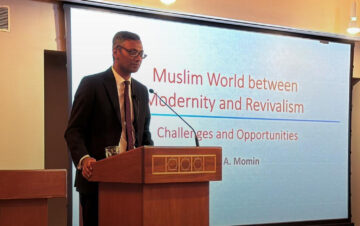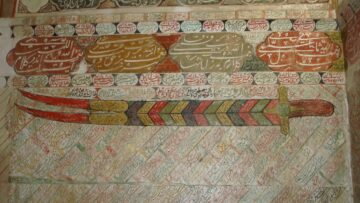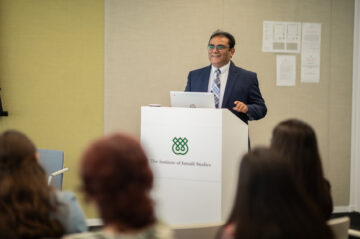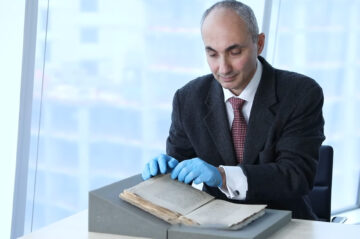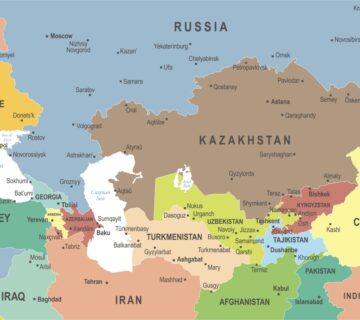Professor Azim Nanji, Director of the IIS, delivered a talk, entitled Combating Religious Intolerance: A Perspective From Muslim Contexts, to the World Affairs Group of the Bath Royal Literary & Scientific Institution (BRLSI) on 19th March 2007. He cited examples of tolerance and intolerance from different religious traditions, both historical and in the present-day context.
Professor Nanji began by linking the architecture of Bath Abbey to the Romanesque tradition, which was influenced by features that had evolved in Muslim Spain. He described the fate of the building at the time of Henry VIII and referred to how the then conflict between Protestants and Catholics in Britain has subsequently been a lesson in dealing with intolerance. He said, “…the particularities of that experience and the cumulative learning that has come from it is a lesson for many other religious traditions as they go through their own transitions.”
In his address, Professor Nanji drew on a number of historical, geographical and literary sources, including the influence of Andalucian architecture, the impact of slavery and racial division, particularly in America, the religious tolerance of a Christian Emperor in Abyssinia in the time of Prophet Muhammad, the assimilation and transmission of knowledge in medieval Muslim history, and the Constitution of Medina developed by Prophet Muhammad. He compared the aims and activities of the Bath Royal Literary & Scientific Institution to those of the Ikhwan al Safa’ (the Brethren of Purity – a 10th century group of Muslim scholars) and suggested that “these represent examples of how we move beyond events. We cultivate out of our common experiences a vocabulary that allows us to build bridges rather than to allow walls to arise.”
The BRLSI is a charitable Trust, founded in 1824 with the aim of furthering “the advancement of literature, science and art”. It received a Royal Charter in 1837 and rapidly acquired a prestigious reputation, especially in scientific circles. Amongst its members, ethnology is particularly well represented. The World Affairs series of talks began in 1997 and has addressed a wide range of international and global issues. These talks are normally given on the third Monday of each month.

